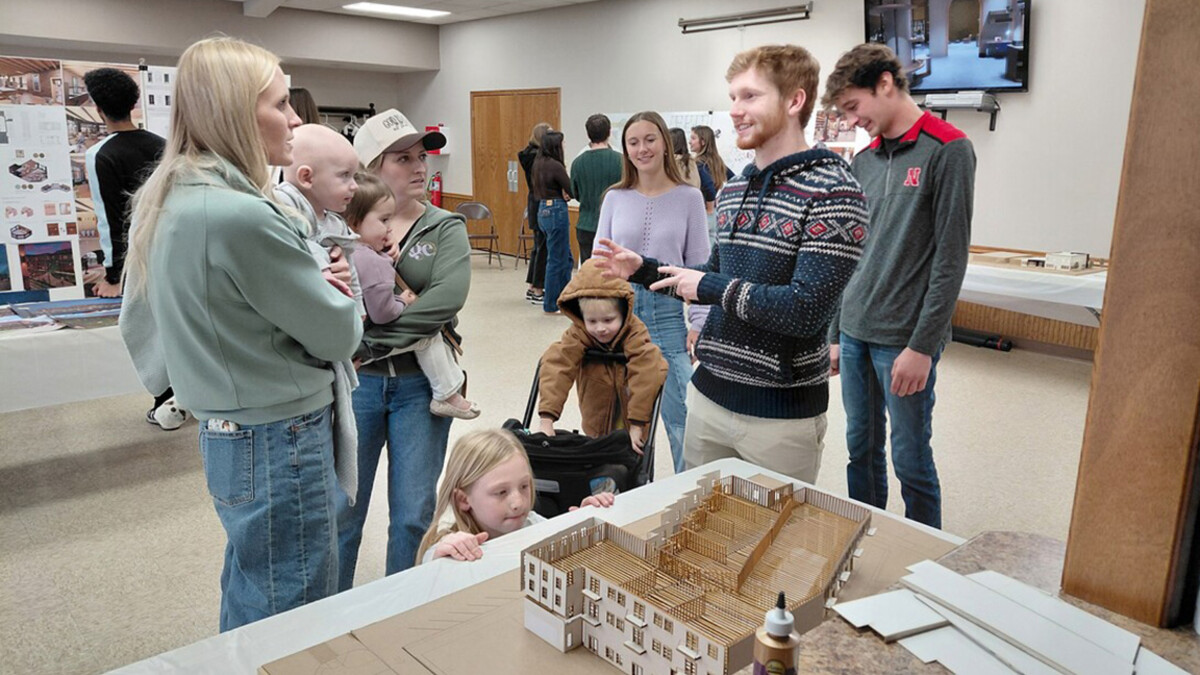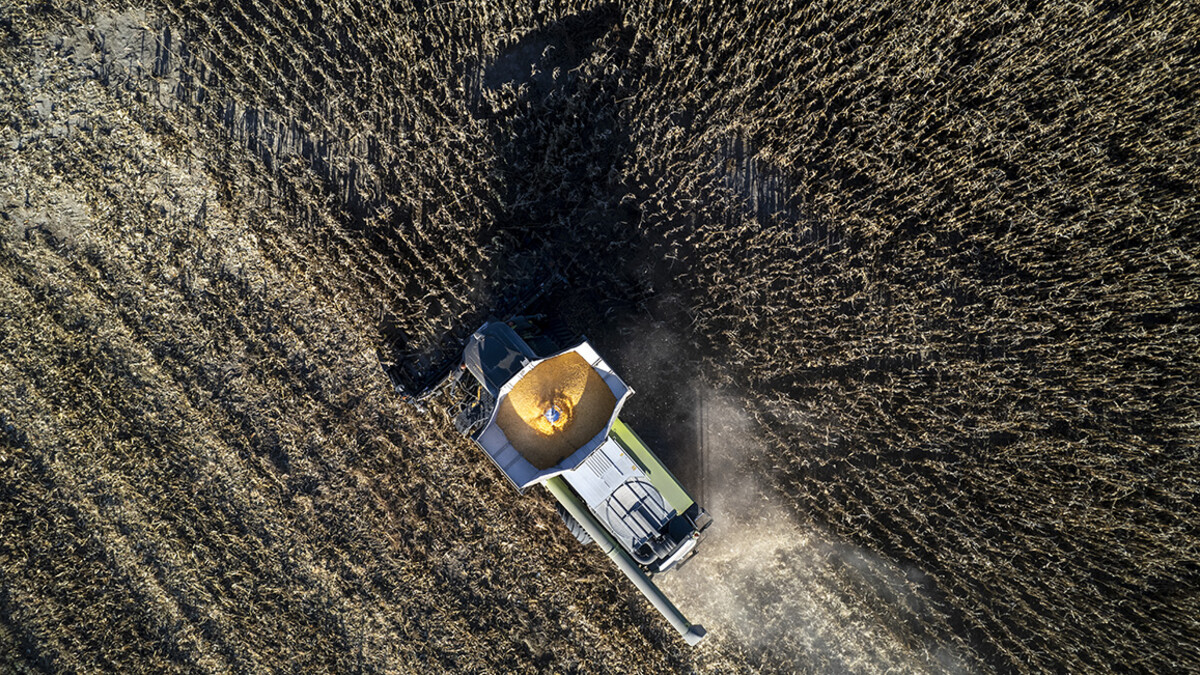
Two University of Nebraska–Lincoln faculty members provided expertise to national media outlets in the aftermath of another deadly school shooting — this time Sept. 4 at Apalachee High School in Winder, Georgia. The stories were among 30-plus national news stories featuring Husker faculty, staff, centers and programs in September.
- Eve Brank, Aaron Douglas Professor of psychology, was interviewed for a Sept. 6 BBC News article on Colin Gray, the father of the Apalachee High School shooter, facing murder charges in the incident. She said she thinks the emerging concept of punishing parents after school shootings reflects broader frustration around U.S. gun violence and, in the absence of regulatory reform, the inability to curb the country’s firearms incidents.
- Brank was also featured in a Sept. 11 Reuters article titled “Why charging the parents of school shooters could be a slippery slope.” She said it’s a tactic that could, at least in theory, extend to non-firearm cases. “A car in the hands of someone under the influence” could also be deadly, she said. “Continuing this trend could mean more opportunities to charge parents with a variety of offenses when their children commit crimes.”
- Mario Scalora, director of the University of Nebraska Public Policy Center, was interviewed for a Sept. 6 Christian Science Monitor article on school districts’ efforts to prevent school shootings. “The key with threat assessment is you tie it in with physical security, partnerships with law enforcement, coordinating not only physical safety, but investigating risks and threats and how you look at response,” he said. “We do this because we all have people we care about in those buildings.” Scalora was also interviewed for recent KETV and Lincoln Journal Star stories on school safety.
Additional national news coverage in September included:
- Broadway World published a Sept. 4 article on “A House Divided,” a new play by Christina Kirk, theatre, which ran Sept. 17-22 at the Lied Center for Performing Arts. Based on real events, the play examines the choices faced by President Abraham Lincoln that threatened to unravel his family and the country during a week in 1863 when Mary Todd Lincoln’s half-sister, Emilie Todd Helm, visited the White House.
- The U.S. Drought Monitor — produced jointly by the university’s National Drought Mitigation Center, the National Oceanic and Atmospheric Administration and the U.S. Department of Agriculture — was cited in a Sept. 5 San Francisco Chronicle article on drought conditions in California. More than half of the state was “abnormally dry,” according to the monitor. (This article requires a subscription.)
- Kevin Smith, political science, was interviewed for a Sept. 8 article in The Hill on the U.S. Senate race between incumbent Sen. Deb Fischer, a Republican, and Dan Osborn, an independent. “At some point, those of us who observe Nebraska politics are going to have to take seriously that this actually is a tight race,” Smith said.
- Smith was also interviewed for a Sept. 20 Newsweek article on Nebraska’s swing 2nd District and Republican efforts to change the state to winner-take-all. Smith said he didn’t believe it was likely state lawmakers would secure enough votes to change the system before the November general election. “Getting this done in that short of a time period means negotiating some pretty tough obstacles in the legislature,” he said.
- Smith was quoted in a similar article in The Hill on Sept. 23. “There is a mathematical universe in the upcoming 2024 presidential election where one electoral vote could be meaningful,” he said.
- Jesse Fulton, director of Nebraska’s Beef Quality Assurance program, was interviewed for a Sept. 10 segment on RFD-TV. He discussed the nationally coordinated, state implemented program, which is designed to ensure that the beef that ends up on grocery store shelves is safe and ethically produced.
- Tickets for the Feb. 4-16 run of “Moulin Rouge! The Musical” at the Lied Center for Performing Arts were set to go on sale to the public at 11 a.m. Sept. 24, Broadway World reported Sept. 10. KOLN/KGIN aired a similar story Sept. 23.
- A multidisciplinary consortium led by Yufeng Ge and Santosh Pitla, both biological systems engineering, received a Grand Challenges grant from the Office of Research and Innovation to study ways to sustainably grow food on space stations, the moon, Mars and other celestial bodies for human consumption. The consortium aims for Nebraska U to be the first university to establish a center dedicated to space agriculture. Ag Web published a story on the consortium Sept. 11.
- Four recent crash tests conducted by the university’s Midwest Roadside Safety Facility raise questions whether significant upgrades are needed to prepare the nation’s highways for the rapidly growing number of electric vehicles. KCTV aired a Sept. 12 story on the crash tests. Ronald Faller, MwRSF director, was interviewed for the story.
- The crash tests also were featured in a Sept. 18 CBS News story. Cody Stolle, MwRSF research assistant professor, was interviewed for that story.
- Bedross Der Matossian, history, wrote a Sept. 15 guest column for The Christian Post on Armenia’s long history in the Holy Land. The column also appeared in The Times of Israel.
- The New York Times published a Sept. 20 article on Nebraska football’s NCAA-record 400-game sellout streak and what it means to fans. Head football coach Matt Rhule was featured in the article.
- With a three-year, nearly $1 million grant from the National Science Foundation, James Schnable, agronomy and horticulture, will help develop the first digital twin of a corn field, enabling researchers to quickly test countless what-if scenarios related to corn performance. Stories on the research appeared in KETV, Nebraska Ag Connection, the Norfolk Daily News, Farms.com and The Fence Post.
- Danielle Jefferis, law, was quoted in a Sept. 23 Christian Science Monitor article on Nebraska officials pushing back against those who have completed felony sentences regaining the right to vote. “It gets to the very fundamental nature of democracy,” she said. “Who has a right to cast a ballot? Who, and when, gets to decide who has that right?”
- Casey Kelly, communications studies, was quoted in a Sept. 23 PolitiFact fact check debunking a recent claim by former President Donald Trump that every Haitian student in Springfield, Ohio, has a private interpreter. “It might not be an explicit reference to far-right, anti-Semitic replacement theories, but it is definitely a hostile way of framing immigration — legal immigration at that — as an attempt to push out, ignore and replace natural-born white Americans with foreign people of color,” Kelly said.
- Mario Scalora, director of the University of Nebraska Public Policy Center, was the featured guest on the Sept. 23 episode of RFD-TV’s “Rural Health Matters,” hosted by Dr. Jeffrey P. Gold, president of the University of Nebraska system. Scalora discussed his work with federal, state and local agencies on threat management and counterterrorism issues.
- Connor Biehler, beef assistant Extension educator, was interviewed for a Sept. 24 segment on RFD-TV. He discussed the Great Plains Heifer Development Program, a new Nebraska Extension program to help cattle producers optimize heifer development and reproductive efficiency.
- Eric Berger, law, was interviewed for a Sept. 26 Associated Press article on death row inmates in five states being put to death in the span of a week. “I’m not aware of any reason other than coincidence,” he said. Berger said some factors can result in a backlog of executions, such as a state’s inability to obtain lethal injections drugs, which happened in South Carolina, or a moratorium following botched executions, which happened in Oklahoma.
- Research by Matthew Van Den Broeke, Earth and atmospheric sciences, was highlighted in a Sept. 27 Vox article on weather radar showing a mass in the eye of Hurricane Helene that was likely birds and perhaps also insects. In a 2021 study, Van Den Broeke analyzed radar from 33 Atlantic hurricanes that hit the U.S. mainland or Puerto Rico between 2011 and 2020. Each showed signs of birds and insects inside the eye of the storm.
- On Oct. 4, the University of Nebraska Board of Regents will consider a sweeping change to university policy that would allow alcohol sales at all athletic contests, rather than require approval on a case-by-case basis. Stories on the proposed change appeared in at least a dozen Nebraska media outlets, Sports Illustrated, The Washington Post and 200-plus other outlets.
Faculty, administration, student and staff appearances in the national media are logged at http://newsroom.unl.edu/inthenews. If you have additions to the list, contact Sean Hagewood at shagewood2@unl.edu or 402-472-8514. If you have suggestions for national news stories, contact Leslie Reed at lreed5@unl.edu or 402-472-2059.







